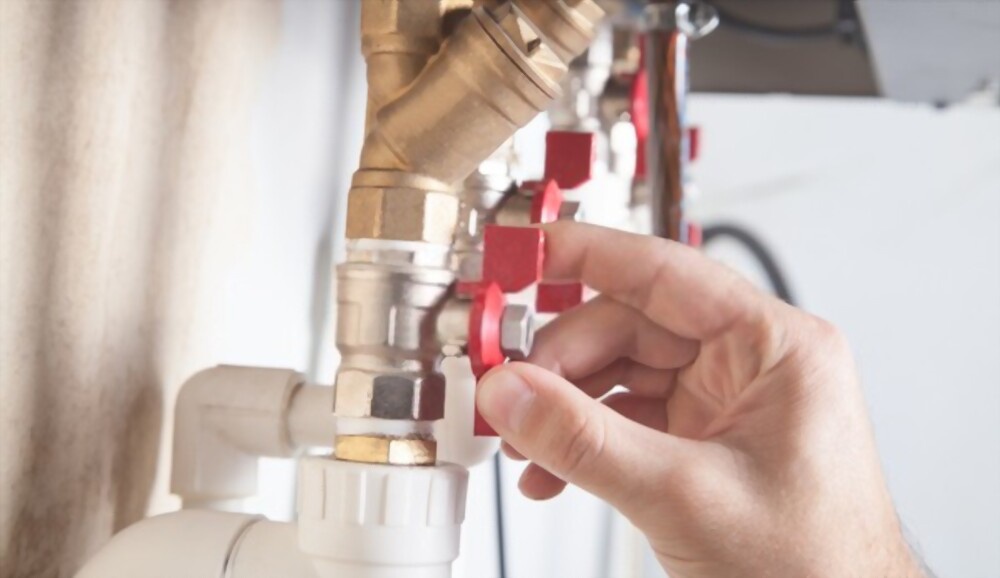A gas isolation valve is an essential piece of equipment for any home or business that uses natural gas or propane for heating, cooking, or other purposes. The primary function of a gas isolation valve is to provide a secure and reliable way to shut off the gas supply in the event of an emergency or for routine maintenance. In this blog, we'll discuss the importance of choosing the right gas isolation valve for your property, as well as some key features to look for when making your decision.
The Importance of a Gas Isolation Valve
Gas leaks can pose serious risks to both your property and the people living or working there. A reliable gas isolation valve is crucial for preventing accidents and ensuring the safety of everyone on the premises. Here are some of the key reasons why a gas isolation valve is so important:
- Preventing gas leaks: A gas isolation valve shuts off the gas supply in case of a leak or an emergency, which prevents the gas from reaching potentially dangerous levels and causing explosions or fires.
- Facilitating maintenance and repair: A gas isolation valve allows technicians to safely shut off the gas supply when performing routine maintenance or repairs on your gas appliances, reducing the risk of accidents.
- Compliance with regulations: In many jurisdictions, installing a gas isolation valve is mandatory for buildings using natural gas or propane. Proper installation and maintenance can help you stay compliant with local regulations and avoid fines or penalties.
Types of Gas Isolation Valves
There are several types of gas isolation valves available, each with its own set of advantages and applications. Some common types include:
- Ball valves: These valves use a rotating ball with a hole through the center to control gas flow. They are known for their durability and ease of operation.
- Butterfly valves: These valves use a rotating disc to control gas flow. They are compact and can be used in tight spaces.
- Plug valves: These valves use a cylindrical or tapered plug with a hole to control gas flow. They offer precise control and are often used in high-pressure applications.
- Diaphragm valves: These valves use a flexible diaphragm to control gas flow. They are ideal for use with corrosive or abrasive gases and can handle varying pressure conditions.
Features to Consider When Choosing a Gas Isolation Valve
When selecting a gas isolation valve for your property, consider the following features:
- Material: The valve material should be corrosion-resistant and capable of withstanding high pressures and temperatures. Common materials include brass, stainless steel, and plastic.
- Size and connection type: The valve should match the size of your gas pipes and have compatible connections, such as threaded or flanged.
- Pressure rating: Choose a valve with a pressure rating suitable for your gas system to ensure safe operation.
- Certification: Look for valves that have been certified by recognized organizations, such as the American Gas Association (AGA) or Underwriters Laboratories (UL), to ensure quality and reliability.
- Ease of operation: Choose a valve that is easy to operate, even in an emergency situation. Some valves feature lever handles, which can be useful in a crisis.
Proper Installation and Maintenance
To ensure the safe and effective operation of your gas isolation valve, it's essential to:
- Hire a qualified professional for installation: A certified gas technician can ensure that your valve is installed correctly, in compliance with local regulations.
- Inspect and maintain the valve regularly: Regular inspections and maintenance can help detect any issues before they become major problems. Schedule routine check-ups with a qualified technician to keep your gas isolation valve in top condition.
- Know how to operate the valve: Familiarize yourself and other occupants of the property with the proper operation of the gas isolation valve. In case of an emergency, knowing how to shut off the gas supply quickly can make all the difference.
- Keep the area around the valve clear: Ensure that the gas isolation valve is easily accessible and not obstructed by any items or debris. This will make it easier to operate the valve during an emergency or maintenance.
Wrap-up and Final Thoughts
A reliable gas isolation valve is a crucial component in protecting your property from gas leaks and other hazards. By choosing the right type of valve, ensuring proper installation, and conducting regular maintenance, you can greatly reduce the risks associated with gas leaks and ensure the safety of your home or business. Always prioritize safety and compliance with local regulations to avoid potential fines or penalties, and keep the occupants of your property safe and secure.
In summary, protect your property by:
- Understanding the importance of a gas isolation valve in maintaining safety
- Familiarizing yourself with the different types of valves available
- Considering key features when selecting a valve, such as material, size, pressure rating, certification, and ease of operation
- Ensuring proper installation and maintenance by hiring a qualified professional
- Keeping the area around the valve clear and accessible
By following these guidelines, you can effectively safeguard your property and the people who live or work there, providing peace of mind and ensuring a safe environment.


No comments yet